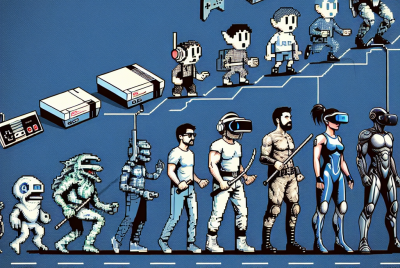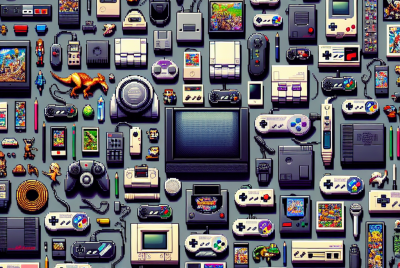The Fine Line Between Fun and Risk: Safe Modding Strategies
Understanding the Basics of Modding
What is Modding?
Modding, short for “modifying,” refers to the process of altering the original features or functionalities of a game, software, or hardware to enhance the user experience. This can range from simple aesthetic changes, like skins and textures, to complex overhauls that introduce new gameplay mechanics and content.
The Appeal of Modding
For gamers and tech enthusiasts alike, modding offers the allure of personalization. It enables users to tailor their experience, transforming a standard game or hardware into something uniquely theirs. However, with this creativity comes a fine line between fun and risk, necessitating safe modding strategies.
The Risks Associated with Modding
Software Risks
-
Malware Infection: Unofficial mods can introduce malicious software, jeopardizing system security. Downloading from untrustworthy sources heightens this risk.
-
Game Instability: Mods can conflict with the original game code, leading to crashes, data loss, or corrupted files. Players may find that a beloved game suddenly becomes unplayable.
-
Breach of Terms of Service: Many games have user agreements that prohibit modifications. Violating these terms can result in bans, loss of access, or other penalties.
Hardware Risks
-
Device Damage: Hardware mods, particularly in gaming consoles or PCs, can cause physical damage if not done correctly, voiding warranties or rendering devices inoperable.
-
Electrical Risks: Overclocking or faulty installations can lead to overheating, posing risks not only to the hardware but also to surrounding environments.
Safe Modding Strategies
Creating a safe modding environment is crucial for a rewarding experience. Consider these strategies to maintain the balance between fun and risk.
1. Research Thoroughly Before Modding
Conduct thorough research before downloading or attempting any modifications. Utilize reputable sources such as gaming forums, Reddit communities, or official modding websites. Assess user reviews and ratings to gauge reliability.
Key Resources:
- Nexus Mods: Known for its extensive catalog of mods, covering numerous games with user ratings.
- Steam Workshop: Allows easy mod installation within Steam, ensuring a more secure environment.
- ModDB: A vast repository for game mods, featuring community ratings and reviews.
2. Backup Your Data
Before making any modifications, always perform a complete backup of your game files and saved data. This ensures that you can restore your original setup without significant loss in case of issues post-installation.
3. Use Mod Management Tools
Employ mod management software to streamline the installation and organization of your mods. These tools often come with features that allow easy activation and deactivation, alongside conflict resolution functionalities.
Recommended Tools:
- Mod Organizer 2: Best for complex mod setups, providing robust management options.
- Vortex: Designed for simplicity, particularly for beginners.
4. Test Mods in Isolation
When introducing new mods, especially significant overhauls, install them one at a time and test the game after each addition. This helps pinpoint any problematic mods quickly.
5. Read User Manuals and Documentation
Many mod creators provide detailed manuals or README files. Familiarize yourself with these instructions to understand compatibility issues, setup requirements, and potential conflicts with other mods.
6. Join a Modding Community
Participating in active modding communities can be beneficial for sharing experiences and tips. These forums provide a wealth of knowledge and support from experienced modders who can guide newcomers.
Popular Platforms:
- Discord: Many modding communities exist where enthusiasts share insights and support.
- Gaming Subreddits: Subreddits dedicated to specific games often have discussion threads focused on mods.
7. Monitor for Updates
Stay informed about updates to both the game and the mods you are using. Developers often release patches that can affect mod compatibility. Checking back on mod forums can help you find any necessary updates or fixes.
8. Be Mindful of Mod Ethics
While modding is generally embraced by the gaming community, it’s important to respect the original creators. Ensure that mods do not infringe on copyrights or intellectual property rights. Supporting mods that pay homage to the original materials can foster a healthier modding environment.
9. Avoid Over-Modification
While it might be tempting to add numerous mods for a richer experience, overloading your game can lead to performance issues and crashes. Aim for a balance, ensuring that your mods complement rather than clutter the overall gameplay.
10. Choose Trusted Mod Developers
Before downloading mods, research the credibility of the mod creator. Established developers are often supported by the community and have a proven track record of providing safe and stable mods.
11. Be Cautious with Game-influenced Changes
Games featuring online elements may adopt measures against modding. Avoid mods that alter gameplay mechanics beyond recognized boundaries, especially if playing in a competitive or multiplayer environment.
12. Document Your Setup
Keep notes of your mods, including their functionality and any issues they cause. This records your modding journey, making it easier to replicate successful setups in the future.
Conclusion
The enthusiasm surrounding modding has given gamers endless opportunities for exploration and customization. However, as with any creative venture, moderation and caution are essential. By employing safe modding strategies, players can enjoy their imaginative additions while minimizing risk. Embrace the world of modding responsibly, and you will expand your gaming experience beyond the original confines, all while keeping your data and system secure.




